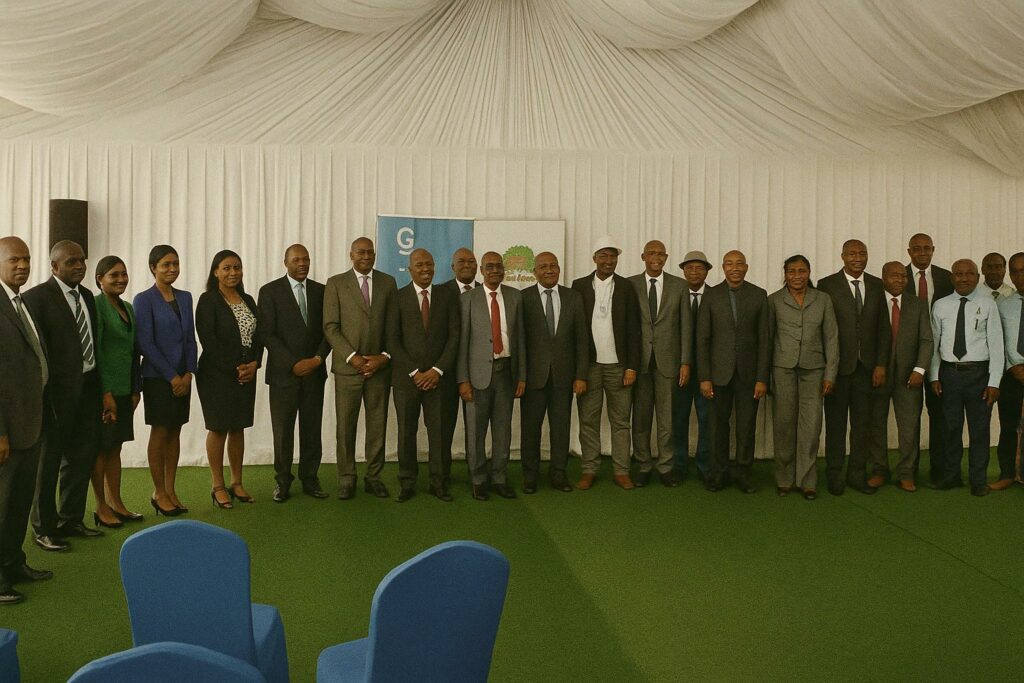Contextualising Youth Vulnerability in Congo-Brazzaville
The Republic of Congo, mirroring wider continental trends, confronts a delicate nexus of juvenile delinquency and gender-based violence that threatens both its social fabric and its long-term development outlook. Recent national crime data indicate a gradual rise in offences committed by minors, while civil-society organisations document persistent cases of violence against women and girls. These challenges do not occur in a vacuum; they are compounded by rapid urbanisation, limited employment prospects and the lingering psychological effects of past conflicts. Officials in Brazzaville increasingly frame the issue not merely as a policing matter but as a question of human security and inclusive growth, recognising that a generation at risk can stall the demographic dividend the country seeks to harness (Congo Ministry of Youth 2024 Annual Report).
Strategic Partnership between UNESCO and the Youth Ministry
Against this backdrop, the Ministry of Youth and Civic Education joined forces with UNESCO from 30 June to 3 July 2025 to conduct an intensive capacity-building workshop for senior trainers of the National Institute for Youth and Sports. Presiding over the opening ceremony, Charles Makaya, the Minister’s Chief of Staff, underscored that “preventing social risk factors is now a pillar of our national development policy”. Brice Kamwa Ndjatang, UNESCO’s Deputy Resident Representative, echoed the sentiment, noting that the partnership embodies the organisation’s global Youth and Sport Task Force mandate to align physical-education structures with broader peace-building goals (UNESCO Youth Development Strategy 2023).
Pedagogical Innovations inside the National Institute for Youth and Sports
During four days of rigorous seminars, role-play scenarios and peer-reviewed case studies, participants deepened their understanding of the socio-psychological mechanisms that lead some adolescents into conflict with the law. International best practices were adapted to local realities, including restorative-justice techniques, trauma-informed counselling and sport-for-development modules that channel competitive energy into constructive teamwork. A special focus was placed on gender-responsive pedagogy: trainers examined how entrenched norms around masculinity can incubate violence, and they designed age-appropriate interventions to dismantle harmful stereotypes in schools, neighbourhood clubs and sports academies.
Aligning Training with National and Global Development Agendas
The workshop’s curriculum was deliberately mapped to Sustainable Development Goals 4, 5 and 16, emphasising quality education, gender equality and the promotion of peaceful, inclusive societies. Domestically, it dovetails with the National Development Plan 2022-2026, which assigns strategic priority to social inclusion and youth employability. Participants analysed recent government measures such as the creation of the National Agency for Youth Insertion and the rehabilitation of the Aubeville centre in Bouenza, facilities that provide vocational pathways and psychosocial support to at-risk youth. By situating their newly acquired skills within these policy frameworks, trainers are expected to function as multipliers capable of converting classroom insights into operational programmes.
From Classroom to Community: Translating Skills into Policy Impact
In the closing session, facilitators drafted a roadmap that commits the Institute to three complementary actions. First, localised monitoring cells will collect disaggregated data on juvenile behaviour, enabling evidence-based prevention strategies. Second, socio-educational committees embedded in partner schools and community centres will serve as early-warning platforms to detect vulnerability signals. Third, a modular system of continuing professional development will ensure that trainers remain abreast of emerging trends, with periodic assessments feeding back into ministerial policy design. By anchoring these steps in a multi-sectoral network that involves justice, health and education actors, the initiative positions itself as a laboratory for holistic governance.
Prospects for Sustainable Cohesion and Human Capital Development
Observers in diplomatic circles commend Brazzaville’s decision to invest in human-capital formation rather than resort exclusively to punitive approaches. The logic is pragmatic: each adolescent successfully redirected away from delinquency becomes a potential contributor to national productivity and a stabilising agent in their community. International partners view the programme as illustrative of the government’s willingness to operationalise global norms through local institutions while respecting sociocultural specificities. As the Congolese authorities prepare mid-term reviews of the National Development Plan, the metrics emerging from this training—lower recidivism rates, improved gender-sensitivity indices and stronger youth civic engagement—will serve as tangible indicators of progress. The convergence of diplomatic support, pedagogical innovation and policy coherence offers a cautiously optimistic forecast for sustained social cohesion in Congo-Brazzaville.

